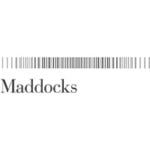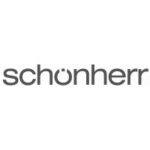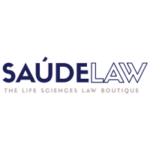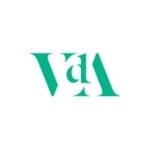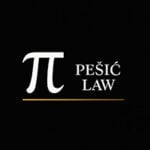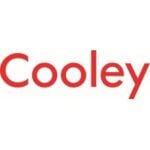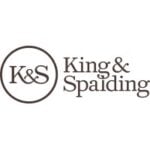-
What laws are used to regulate advertising on medicines in your jurisdiction?
Advertising of medicinal products is regulated in numerous acts of Polish domestic law. The general rules are set out in the act of 6th September 2001 – Pharmaceutical Law (hereinafter referred to as: the Pharmaceutical Law). They were further clarified and extended in the regulation of the Minister of Health of 21st November 2008 on advertising of medicinal products (hereinafter referred to as: the regulation on advertising of medicinal products). Moreover, the promotion of medicines shall also comply with other general regulations such as provisions of the act of 16th April 1993 on combating unfair competition (hereinafter referred to as: act on combating unfair competition) and the act of 29th December 1992 on radio and television broadcasting.
-
Are there any self-regulatory or other codes of practice which apply to the advertising of medicines? a) If there are any such codes, to whom do they apply (companies, or healthcare professionals, for example)? b) What is the legal status of the self-regulatory codes?
There are several self-regulatory codes adopted by industry organisations of marketing authorisation holders. For example, internal rules of good practice on advertising of medicinal products were created by the:
- Polish Association on Self-Medication Industry (PASMI),
- Employers’ Union of Innovative Pharmaceutical Companies INFARMA,
- Polish Union of Employers in the Pharmaceutical Industry (PZPPF).
a. If there are any such codes, to whom do they apply (companies, or healthcare professionals, for example)?
The self-regulatory codes of good practice mentioned above apply to the members of the organisation in question, the companies which became the signatories of the codes adopted.
b. What is the legal status of the self-regulatory codes?
The self-regulatory codes are not generally applicable in Polish law order. They apply and are binding only for the companies affiliated in the organisation in question, which have signed the organisation’s internal act adopting the self-regulatory code. Following the rules set forth in such codes is seemed as a good practice, but there is no penalty for the companies, which do not comply with them.
-
Is there a statutory or generally accepted definition of “advertising”? a) What does the definition cover? – does it include patient information leaflets, for example, catalogues, disease awareness campaigns or correspondence, for example? b) Does the definition apply equally to all target audiences?
A definition of advertising is set out in article 52 section 1 of the Pharmaceutical Law. According to that provision ‘advertising of medicinal product is the activity of informing or encouraging the use of e medicinal product with the aim of increasing: the number of prescriptions, supply, sales or consumption’.
a. What does the definition cover? – does it include patient information leaflets, for example, catalogues, disease awareness campaigns or correspondence, for example?
According to the article 52 section 2 of the Pharmaceutical Law, advertising covers in particular:
- advertising of a medicinal product addressed to the public;
- advertising of a medicinal product addressed to persons authorised to issue prescriptions or persons trading in medicinal products;
- visiting persons authorised to issue prescriptions or persons trading in medicinal products by sales or medical representatives;
- proving samples of medicinal products;
- sponsoring of promotional meetings for persons authorised to issue prescriptions or persons trading in medicinal products;
- sponsoring of conferences, conventions and scientific congresses for persons authorised to issue prescriptions or persons trading in medicinal products.
Section 3 of the mentioned article mentioned above determine which activities are not considered as advertising and those are:
- information placed on the packaging and attached to the packaging of medicinal products if the information is consistent with the marketing authorisation granted;
- correspondence to which non-promotional handouts are attached and those are necessary to answer questions about a specific medicinal product;
- announcements of an informative nature not addressed to the public, in particular, changes in packaging, warnings about side-effects, provided that those do not contain content relating to the properties of medicinal products;
- commercial catalogues or price lists that contain only the generic name, common name, dose, form and price od medicinal product, and in case of refunded medicinal product – the official retail price, provided that they do not contain content relating to the properties of medicinal products, including therapeutic indications;
- information on human or animal health or diseases, provided that they do not refer – even indirectly – to medicinal products.
b. Does the definition apply equally to all target audiences?
The definition of advertising of medicinal products are the same for all target audiences, but the advertising itself must meet other specified conditions depending on the target group to which it is addressed.
-
Are press releases regarding medicines allowed in your jurisdictions, and if so what are the restrictions on these (bearing in mind the target audience)?
Any press releases regarding medicinal products are consider as advertising and must meet the general conditions determined for the target audience to which they are addressed. In particular, if they are addressed to public or they are released in any way that makes it possible to get acquainted with them by public audience, they must contain a warning specified in the regulation on advertising of medicinal products.
According to the article 56 of Pharmaceutical Law it is prohibited to advertise medicinal products that have not been authorised in Poland or have been placed into market without necessity of gaining the authorisation according to the specific provisions. The advertising that contains information, which is contrary to Summary of Product Characteristics, is prohibited as well. Aforementioned rules apply to all press releases regardless of which target audience they are addressed to.
Moreover, it is not allowed to address any press release to the public audience if it concerns:
- medicinal products issued on the basis of the prescription;
- medicinal products that contain narcotics and psychotropic substances;
- medicinal products that included on the lists of refunded medicines, in accordance with specific regulations, and medicinal products that are allowed to be issued without prescription but their name is identical to those included on the lists mentioned above.
-
Are there any processes prescribed (whether by law or Codes of Practice) relating to the approval of advertising of medicines within companies?
In Polish law order there are no determined procedures relating to the approval of advertising of medicinal products before their releasing. A good practice used by corporations is to establish an internal path for the acceptance of materials, where acceptance takes place by the medical department and then by the legal department.
-
Do companies have to have material approved by regulatory bodies prior to release?
The companies do not have to gain prior approval for promotional materials.
-
Is comparative advertising for medicines allowed and if so, what restrictions apply?
As a general rule, a comparative advertising is allowed in Polish legal order, but there are no specific regulations determining it in case of medicinal products only. Therefore, it needs to comply with general provisions for advertising set forth in the act on combating unfair competition.
According to the article 16 section 3 of the aforementioned act the comparative advertising must be consistent with good morals and comply with the following rules:
- it is not a misleading advertisement;
- it compares products meeting the same needs or intended for the same purpose, in a fair manner, which is verifiable on the basis of objective criteria;
- it objectively compares one or more relevant, characteristic, verifiable and typical features of these products, which may include a price;
- it does not cause confusion in the market to distinguish between the advertiser and its competitor, or between their products or services, trademarks, business signs or other distinctive signs;
- it does not discredit the goods, services, activities, trademarks, business signs or other distinctive signs, as well as the circumstances of the competitor;
- for goods with protected geographical indication or protected designation of origin the advertising always refers to goods with the same indication;
- it does not take unfair advantage of the reputation of competitor’s trademark, business designation or other distinctive sign, or of protected geographical indication or protected designation of origin of competing products;
- it does not present the product as an imitation or copycat of a product bearing a protected trademark, protected geographical indication or protected designation of origin or other distinctive indication.
Another important principle is the comparison of products of the same category, or in other words, the prohibition of comparing drugs with dietary supplements or medical devices.
-
Is it possible to provide information on unauthorised medicines or unauthorised indications? Is it possible to provide information on unauthorised medicines or unauthorised indications during a scientific conference directed at healthcare professionals, or to send information to healthcare professionals?
According to the article 56 of Pharmaceutical Law, advertising of medicinal products is prohibited, if:
- they are not authorised in Poland;
- they are placed into market without the need for authorisation, as referred in the article 4 of Pharmaceutical Law (target import);
- the advertising contains information inconsistent with either the Summary of Product Characteristics or the Summary of Product Characteristics for Veterinary Medicinal Product.
Moreover, according to the article 54 section 1 of Pharmaceutical Law, advertising of a medicinal product addressed to persons authorised to issue prescriptions of persons trading in medicinal products should comply with the Summary of Product Characteristic.
Therefore, according to aforementioned provisions it is not allowed to provide promotional content on unauthorised medicines or unauthorised indications towards any of the audience groups.
-
Please provide an overview of the rules that apply to advertising to the general public for prescription only medicines and over the counter medicines, and include the information that must or must not be included.
As mentioned in response to some of the questions above, the article 56 of Pharmaceutical Law provides the general restrictions for advertising of medicinal products, which apply also to those addressed to the public audience. According to the aforementioned provision it is prohibited to advertise medicines that have not been authorised in Poland or have been placed into market without necessity of gaining the authorisation according to the specific provisions on target import. The advertising that contains information, which is contrary to Summary of Product Characteristics, is prohibited as well.
According to the article 57 section 1 of Pharmaceutical Law, it is not allowed to address advertising to the public audience, if it concerns:
- medicinal products issued on the basis of the prescription;
- medicinal products that contain narcotics and psychotropic substances;
- medicinal products that included on the lists of refunded medicines, in accordance with specific regulations, and medicinal products that are allowed to be issued without prescription but their name is identical to those included on the lists mentioned above.
The article 53 of Pharmaceutical Law sets forth that the advertising:
- must not be misleading, should present the medicinal product objectively and provide information about its rational use;
- may not consist of offering or promising any benefits, directly or indirectly, in exchange for the acquisition of a product or for providing evidence that such acquisition has taken place;
- must not be directed to children or contain any elements addressed to them.
Other rules for advertising over the counter medicines addressed to the public audience are provided in the article 55 of Pharmaceutical Law, which states that:
- a medicinal product must not be presented by public figures, scientists, persons with medical or pharmaceutical education background or suggesting that they have one;
- it must not refer to the recommendations of public figures, scientists, persons with medical or pharmaceutical education background or suggesting that they have one;
- it must not suggest that:
– a) it is possible to avoid medical advice or surgery, especially by making a diagnosis or recommending treatment by correspondence;
– b) even a healthy person taking a medicinal product will improve one’s health;
– c) failure in taking a medicinal product may make one’s health condition worse; this restriction does not apply to protective vaccinations;
– d) a medicinal product is a food, a cosmetic or other consumer product;
– e) the effectiveness or safety of a medicinal product is due to its natural origin; - it must not ensure that taking a medical product guarantees the right result, there is no side-effects or that the result is better or the same as in case of other treatment method or treatment with other medicinal product;
- it must not consist the content that may lead to misdiagnosis by citing detailed case descriptions and referring to symptoms of the disease;
- it must not refer in an inappropriate, alarming or misleading form to therapeutic indications;
- it must not contain an inappropriate, disturbing or misleading descriptions of graphically depicted lesions, injuries to the human body or results of the medicinal product on the human body or its parts.
Any visual, audial and audiovisual advertising of medicinal products, if they are addressed to public or they are released in any way that makes it possible to get acquainted with them by public audience, must contain essential data which are:
- the name of medicine;
- the commonly used name of active substance, and in the case of a medicinal product containing more than 3 active substances, the term: ‘combination product’;
- the dose of the active substance or the concentration of the active substance, excluding the combination product;
- the pharmaceutical form;
- the therapeutic indications for use;
- the marketing authorisation holder.
Any visual, audial and audiovisual advertising of medicinal products must also contain a warning specified in the regulation on advertising of medicinal products. The warning is allowed in 3 following forms:
- A) ‘This is a medicine. For your safety, use it according to the patient information leaflet inserted to the package. Do not exceed the maximum dose. If in doubt, consult a doctor or pharmacist.’
- B) ‘This is a medicine. For your safety, use it according to the patient information leaflet inserted to the package and only if it is necessary. If in doubt, consult a doctor or pharmacist.’
- C) ‘This is a medicine. For your safety, use it according to the patient information leaflet inserted to the package. Pay attention to the contraindications. If in doubt, consult a doctor or pharmacist.’
-
Are there any restrictions on interactions between patients or patient organisations and industry (e.g., consultation, sponsorship)? If so, please describe those briefly.
Sources of commonly applicable law does not determine specific regulations on interactions between patients or patient organisations and industry. Nevertheless, Good practices for collaboration between innovative pharmaceutical companies and patient organisations have been specified in the self-regulatory Code of Good Practise, adopted by Employers’ Union of Innovative Pharmaceutical Companies INFARMA.
Aforementioned Code of Good Practise provides that cooperation should be based on mutual respect and should guarantee the independence of patient organisations in their actions, and the views expressed and decisions made by each partner will have equal value. Each company, who has adopted these provisions, is obliged to make a list of patient organisations, to which it donates monetary, substantial in-kind or non-material assistance publicly available. This list should include a brief description of the assistance provided and its value. In the case of significant non-material assistance, the value of which is difficult to estimate, this description should include the characteristics of the benefit received by the patient organisation. This information is published on the pharmaceutical company’s local website, or, if there is no local website,
on the company’s global website or on INFARMA’s website. According to the provisions of the Code, such information should be updated at least once a year.
-
Which information must advertising directed at healthcare professionals contain, and which information is prohibited? For example, can companies provide information about clinical trials, or reprints of scientific journal articles?
Advertising of medicinal products addressed to professionals shall comply with information provided in the Summary of Product Characteristics. Any documentation provided to this target group shall be reliable, up-to-date, verifiable and complete enough to enable the recipients to make their own assessment of the therapeutic value of the medicinal product. It should also provide the information on the date, in which it was prepared or last updated.
Providing information about clinical trials, the latest scientific reports or reprints that contain information that goes beyond the Summary of Product Characteristics included in a company’s portfolio may be provided, but only in the form of medical information, completely unrelated to the advertising of a drug. Such material may be provided at a scientific conference or by a medical department, completely separate from promotional activities and unrelated to a specific medicinal products.
-
May pharmaceutical companies offer gifts to healthcare professionals and are there any monetary limits?
It is allowed to offer gifts to healthcare professionals by pharmaceutical companies. The general rule is that it is forbidden to direct to persons authorised to issue prescriptions and persons trading in medicinal products advertising of a medicinal product consisting in giving, offering and promising material benefits, gifts and various facilities, prizes, excursions, as well as organizing and financing promotional meetings of medicinal products, during which manifestations of hospitality go beyond the main purpose of the meeting. However, the above does not apply to offering items of material value not exceeding the amount of PLN 100, related to the practice of medicine or pharmacy, bearing a sign advertising a particular company or medicinal product.
-
Are pharmaceutical companies allowed to provide samples to healthcare professionals?
In accordance to provisions of the article 54 section 3 of Pharmaceutical Law, free samples of medicinal products are a form of advertising, and they may be offered to healthcare professionals, provided that:
- the person authorised to issue prescriptions has requested in writing to the sales or medical representative of to provide a sample of the medicinal product;
- the person providing the sample keeps a record of the samples provided;
- each sample supplied is no larger than one of the smallest packages of a medicinal product authorised for marketing on the territory of the Republic of Poland;
- each sample provided is labelled as ‘a free sample – not for sale’;
- each sample supplied is accompanied by either a Characteristic of Medicinal Product or a Characteristic of Veterinary Medicinal Product;
- the number of samples of the same medicinal product supplied to the same person does not exceed five packages per year.
The advertising of a medicinal product by providing free samples may not refer to medicines containing narcotic or psychotropic substances, or precursors of category 1, and if the recipient of such advertising is a pharmacist, it may not refer to medicinal products with an availability category other than issued without a doctor’s prescription (over the counter, OTC).
-
Are pharmaceutical companies permitted to sponsor scientific meetings or congresses and/or attendance by healthcare professionals to these events? If so, which restrictions apply? Do additional restrictions apply to events taking place abroad?
According to the article 52 section 2 point 6 of Pharmaceutical Law, the sponsorship of conferences, conventions and scientific congresses for persons authorised to issue prescriptions or persons trading in medicinal products, is considered as advertising. Therefore, if any medicines are presented during such events, the general conditions provided for advertising of medicinal products must be met.
The sponsorship of various events of a commercial nature is allowed, provided that the main purpose of the meeting is to provide medical information to the guests (healthcare professionals), rather than to maintain relationships and social ties. Financing of commercial events with the participation of healthcare professionals or those trading with medicinal products is most often carried out on the basis of sponsorship agreements, which allows the contracting parties to arrange the legal relationship as they see fit, as long as its content or purpose does not oppose the nature of the legal relationship.
There are no specific restrictions applicable to events taking place abroad.
-
What are the restrictions on the organisation of cultural, sports or other non-scientific events in relation to scientific conferences by pharmaceutical companies?
The organisation and funding of cultural, sporting or other non-scientific events in relation to scientific conferences by pharmaceutical companies is permitted, as long as the so-called ‘hospitality’ does not go beyond the main purpose of the meeting. This term shall be understood to include any entertainment elements or additional points of the meeting not related to its main topic and intended to make the meeting more attractive for its participants, if they can be objectively considered as excessive.
Determining whether expressions of hospitality go beyond the main purpose of the meeting is sometimes very difficult, as Polish law does not itself set a limit which the meeting organiser should not exceed.
However, professional organisations of pharmaceutical and medical companies have adopted their own regulations to address these issues. These are, of course, not universally applicable regulations, but the members of the organisation undertake to comply with them.
An example of an organisation that has regulated hospitality rules internally is the Employers’ Union of Innovative Pharmaceutical Companies INFARMA, which has its own Code of Good Practice. Among other things, members of this organisation have committed themselves to certain financial limits when organising a promotional meeting or conference. The limits set the maximum amount a company can spend in sponsoring accommodation or a meal for a meeting participant. In addition, other restrictions have also been introduced, such as the prohibition to organise events in luxury hotels with a category of five stars and in places associated with entertainment or in sea or ski resorts.
-
Is it possible to pay for services provided by healthcare professionals and if so, which restrictions apply?
Cooperation with healthcare professionals is permitted, insofar as the services provided to the pharmaceutical company relate to healthcare, education or research. Under no circumstances may services be contracted (and paid for) that involve the HCP advertising medicinal products or services of a pharmaceutical company.
Payments for any services performed by HCPs, shall in no way (even indirectly) constitute an inducement to prescribe medicinal products to patients.
Therefore, payment of remuneration to a healthcare professional – a speaker at a medical conference, for example- is permitted.
However, attention must be taken to ensure that the remuneration is fair to the market value of the service provided by the HCP, and that providers are selected according to their medical qualifications/specialisation. This may help to avoid the risk of possible allegations that the service contract and payment has a hidden purpose (being a sham contract).
However, the law does not clarify this scope, so here too the industry has decided to self-regulate.
The Employers’ Union of Innovative Pharmaceutical Companies INFARMA, obliges signatories to the organisation’s adopted code to, among other things, ensure that contracts with HCPs are in writing and that service providers are selected according to predetermined and objective criteria (such as specialisation, medical experience).
Separately, the Medicines for Europe Code of Conduct, adopted by the non-governmental non-profit organisation Medicines for Europe, states that remuneration to healthcare professionals for the provision of services must be at a rate that represents fair market value for the service, taking into account the qualifications, experience, professional role, rank and location of the person performing the work.
-
Are pharmaceutical companies permitted to provide grants or donations to healthcare professionals or healthcare institutions? Does it matter if the grant or donation is monetary or in kind?
Pharmaceutical companies may grant donations, but in no case directly to HCPs. In principle, donations to healthcare institutions as well as patient organisations are permitted.
In any case, the donation should be targeted, in the sense that the purpose of the donation should be clearly defined in advance. The implementation of the donation should be reliably documented.
As a general rule, donations cannot be granted in connection with the promotion/advertising of a medicine or directly to the HCP. Such an action would expose the company to accusations of corruption or inducing HCPs to prescribe specific medicinal products.
An exception to this is gifts transferred directly to the HCP related to the practice of medicine or pharmacy, provided that their gross value does not exceed the amount of PLN 100 and that they are branded to advertise a particular company or medicinal product. Such gifts may be transferred directly to the HCP.
Similarly, it is permissible to transfer samples of medicinal products directly to the HCP, provided that:
- the HCO has requested this from the pharmaceutical company’s sales or medical representative,
- each sample supplied is no larger than one of the smallest packages of a medicinal product authorised for marketing on the territory of the Republic of Poland,
- each sample supplied is labelled ‘free sample – not for sale’,
- the number of samples of the same medicinal product supplied to the same person shall not exceed five packs per year,
- the summary of product characteristics of the medicinal product will be provided with the sample.
The pharmaceutical company must maintain records of samples supplied to the HCP.
On the other hand, the law does not specify specific requirements for donations to healthcare organisations or patient organisations. The general principles of the anti-corruption legislation should therefore apply.
In practice, pharmaceutical companies most often establish a donation approval process within their business so that it is clearly independent of sales targets.
The law does not explicitly regulate the permitted subject matter of donations. The Employers’ Union of Innovative Pharmaceutical Companies INFARMA, on the other hand, allows not only in- material but also monetary donations to healthcare organisations and to patient organisations (subject to certain conditions). Similarly, the Medicines for Europe Code of Conduct allows this. However, transparency is key.
-
Are pharmaceutical companies required to disclose details of transfers of value to healthcare professionals or healthcare institutions? If so, please indicate whether this is a legal requirement or not, and describe briefly what the companies must report and how. Do these transparency requirements apply to foreign companies and/or companies that do not yet have products on the market?
As a general rule, the relevant public authority (public administration or court), acting within the limits of the legal authorisation, may request a pharmaceutical company to disclose detailed information (e.g. for the purpose of conducting proceedings in a specific case). The requesting entity shall then indicate the specific scope of information to be disclosed. In principle, these requirements apply to all participants in the Polish market.
Notwithstanding, signatories to both Code of Good Practice of the Employers’ Union of Innovative Pharmaceutical Companies INFARMA and the Medicine of Europe Code of Conduct, have committed to disclosing benefit transfers.
In the case of benefits to healthcare organisations, the disclosures relate to: grants and donations, costs in connection with events sponsored or organised by the company (e.g. registration fees paid by the company for the participation of representatives of the organisation concerned), remuneration for services and consultancy.
In the case of benefits to HCPs, the information disclosed relates to: costs in connection with participation in an event (e.g. the cost of registration fees that the company covered for the participation of the HCPs concerned or the doctor’s travel costs to the conference venue) and remuneration for services and consultancy provided by HCPs to the pharmaceutical company.
These data are published for each calendar year, on a dedicated platform or website of the signatory (at national or European level).
-
Are there any restrictions (whether by law or Codes of Practice) on advertising for medicines on social media directed to healthcare professionals or directed to the general public?
The general provisions on advertising apply. Laws applicable in Poland generally regulate the conduct of advertising in audiovisual, visual and audio forms. If an advertisement is transmitted in social media, the provisions generally applicable to the form of advertising in question and relevant to the audience apply.
It is important, however, that closed advertising (i.e. conducted to healthcare professionals) is subject to different requirements than advertising available to all social media users. For example, it is permissible to publish content about Rx medicinal products on a closed social media profile, as long as it is only accessible to users who have been previously verified as having prescribing/medical product marketing authorisation.
-
Is advertising on the internet for medicinal products regulated, and if so, how? Should companies include access restrictions on websites containing advertising or other information intended for healthcare professionals?
The general provisions on advertising apply. Laws applicable in Poland generally regulate the conduct of advertising in audiovisual, visual and audio forms. If an advertisement is transmitted on websites, the provisions generally applicable to the form of advertising in question and relevant to the audience apply.
It is important, however, that closed advertising (i.e. conducted to healthcare professionals) is subject to different requirements than advertising available to all websites users. For example, it is permissible to publish content about Rx medicinal products on a closed website, as long as it is only accessible to users who have been previously verified as having prescribing/medical product marketing authorisation. Pharmaceutical companies must secure access to this type of content from patients.
-
Are there any anti-bribery rules that apply to communications between pharmaceutical companies and healthcare professionals or healthcare organisations?
Yes. The regulations applicable apply: the Criminal Code Act, the Polish Collective Entity Liability Act, the Polish Suppression of Unfair Competition Act, the Competition and Consumer Protection Act, the Pharmaceutical Law and Reimbursement Law and personal data protection regulations.
These areas are also regulated in industry codes. For example, the INFARMA Code of Good Practice establishes that the purpose of any contact with HCPs should be to increase their knowledge of therapeutic areas, disease entities, diagnostics and drugs available on the market, within the limits allowed by law or to improve the quality of patient care. Any direct and indirect financial transfers, on the other hand, may only serve this purpose and take place in accordance with law, and in particular may not condition therapeutic decisions taken by the HCP.
-
What are the rules (whether statutory or self-regulatory) which govern the offering of benefits or inducements to healthcare professionals?
Pursuant to Article 58 of the Pharmaceutical Act, it is prohibited to target persons authorised to issue prescriptions and persons trading in medicinal products with the advertising of a medicinal product which consists in giving, offering and promising material benefits, gifts and various facilities, prizes, excursions and organising and financing promotional meetings of medicinal products where the manifestation of hospitality goes beyond the main purpose of the meeting. At the same time, it is prohibited to accept such benefits.
These regulations do not apply to the giving or accepting of gifts of gross value not exceeding the amount of PLN 100, related to the practice of medicine or pharmacy and that they are branded to advertise a particular company or medicinal product.
Advertising of a medicinal product by providing samples of it free of charge may only be addressed to persons authorised to prescribe, provided that:
- this person has requested this from the pharmaceutical company’s sales or medical representative in writing,
- the person supplying the sample shall maintain a record of the samples supplied,
- each sample supplied is no larger than one of the smallest packages of a medicinal product authorised for marketing on the territory of the Republic of Poland,
- each sample supplied is labelled ‘free sample – not for sale’,
- the number of samples of the same medicinal product supplied to the same person shall not exceed five packs per year,
- the summary of product characteristics of the medicinal product will be provided with the sample.
However, the advertising of a medicinal product by providing samples of the product free of charge may not concern medicinal products containing narcotic drugs or psychotropic substances or Category 1 precursors and, where the recipient of such advertising is a pharmacist, it may not concern medicinal products with a category of availability other than OTC.
Independently, there are regulations on criminal liability (Articles 228(1) and 229(1) of the Polish Criminal Code). These provisions stipulate, respectively, that whoever, in connection with the performance of a public function, accepts a material or personal benefit or the promise thereof, shall be subject to a penalty of imprisonment for a term of six months to eight years; the same penalty shall be imposed on whoever gives or promises to give a material or personal benefit to a person performing a public function in connection with the performance of that function.
In the view of industry regulations, it should be assumed that they correspond to the above principles and only clarify certain aspects.
The INFARMA, which has already been referred to above in its Code of Good Practice, has established a number of additional rules concerning the giving of gifts to persons authorised to issue prescriptions and who trade in medicines, such as:
- the prohibition of displaying the name or logo of a medicinal product on a donated item while requiring the name or logo of the manufacturer of the medicine to be displayed;
- a prohibition on the donation of items that detract from the routine costs of running a medical or pharmaceutical practice;
- the possibility of donating only items that do not constitute an inducement to recommend, prescribe, purchase, supply, sell or administer a medicinal product;
- the possibility of donating pens, notepads, bags or briefcases of negligible value bearing only the company’s logo for taking notes during meetings of which the drug manufacturer is the sole organiser.
-
Which bodies are responsible for enforcing the rules on advertising and the rules on inducement? Please include regulatory authorities, self-regulatory authorities and courts.
In terms of regulatory bodies, these are: Chief Pharmaceutical Inspectorate and its dependent pharmaceutical inspectorates (acting according to local jurisdiction) and the Office of Competition and Consumer Protection.
In terms of courts: the ordinary courts and the administrative courts.
In terms of self-regulatory bodies these are: Disciplinary Court functioning at the Employers’ Union of Innovative Pharmaceutical Companies INFARMA (however, only in relation to the signatories of this Code) and Disciplinary Court functioning at the Polish Association of Employers of the Pharmaceutical Industry – National Producers of Medicines (however, the Disciplinary Court can act only in relation to the signatories of the given Code).
One can also point to the Union of Associations Advertising Council, which adopted the Code of Ethics in Advertising and established the Commission of Ethics in Advertising. This Commission publishes resolutions in which it decides whether a given advertisement (e.g. of a medicinal product) is in compliance with the Code of Ethics in Advertising adopted by this association. It also assesses the advertising of entities that have not signed the above-mentioned code. This body cannot impose a penalty on the advertiser or enforce a specific action; however, the publication of a resolution on the non-compliance of a given advertisement for a medicine with a given advertising code can certainly be an inconvenience from the perspective of a pharmaceutical company.
-
On what basis and before which bodies or courts can companies initiate proceedings against competitors for advertising infringements?
This is available through civil law actions before the public courts. In such a case, the basis for the claim should be sought in the provisions of the Polish Suppression of Unfair Competition Act.
Independently, where the parties are signatories to the aforementioned industry codes, it is possible to lodge a complaint against a competitor’s action with a disciplinary court.
-
What are the penalties, sanctions or measures that regulators or courts can impose for violating medicines advertising rules and rules on inducements to prescribe in your jurisdiction?
In proceedings before a civil court, in the event of an act of unfair competition, the entrepreneur whose interest has been threatened or infringed may demand:
- the cessation of the prohibited acts;
- remove the effects of the prohibited actions;
- make a single or repeated statement of appropriate content and form;
- compensation for the damage caused, on general principles;
- to surrender the unjustly obtained benefits, on general principles;
- to award an appropriate sum of money for a specific social purpose related to the promotion of Polish culture or protection of national heritage – if the act of unfair competition was culpable.
The court, at the request of the entitled party, may also rule on advertising materials and other objects directly related to the commission of the act of unfair competition. In particular, the court may order that they be destroyed or credited as damages.
The Chief Pharmaceutical Inspector may oblige the entrepreneur to:
- the cessation of the appearance or conduct of advertisements for medicinal products that are contrary to the applicable regulations;
- the publication of the issued decision in the places where the illegal advertisement appeared, and the publication of a correction of the misleading advertisement;
- the removal of identified violations.
In certain cases, where an activity infringes the collective interests of consumers, the President of the office of Competition and Consumer, for infringements in the advertising of medicinal products, may impose a financial penalty on an entrepreneur in an amount not exceeding 10% of the turnover achieved in the financial year preceding the year of imposing the penalty.
In addition, liability under the Criminal Code may come into effect with regard to illegal inducements, (Articles 228(1) and 229(1) of the Act of 6 June 1997, Penal Code). These provisions stipulate respectively that whoever, in connection with the performance of a public function, accepts a material or personal benefit or a promise thereof, shall be subject to a penalty of deprivation of liberty for a term of between 6 months and 8 years; the same penalty shall be imposed on whoever gives or promises to give a material or personal benefit to a person performing a public function in connection with the performance of that function.
-
What is the relationship between procedures before or measures taken by the self-regulatory authority and the procedures before or measures taken by courts/government competent authorities?
These are independent procedures and measures. The pharmaceutical company that is a signatory to an industry code can be punished by a disciplinary court, while not being obliged to provide any benefits in relation to this violation, by a public administration body, an administrative court or an ordinary court (and vice versa).
-
Are there any recent enforcement trends in relation to pharmaceutical advertising in your jurisdiction? Please report any significant (publicly known) enforcement actions in the past two years.
The last two years have not seen increased enforcement of pharmaceutical advertising legislation. Rather, it has remained stable. However, we note that the Polish regulatory authorities apply restrictive interpretations of the pharmaceutical law, in particular with regard to the conduct of public advertising.
Unfortunately, the regulatory authority does not publish all administrative decisions. Many of the proceedings initiated on advertising end up being discontinued, due to the advertiser voluntarily modifying the advertisement (due to the authority’s mere suspicion of non-compliance with the law). This, in turn, most often results in the discontinuation of proceedings at the initial stage (and, as a rule, does not reach the public). Nevertheless, the activity in terms of initiating proceedings is certainly quite high on the part of the Chief Pharmaceutical Inspectorate. Significantly less so on the part of the Office of Competition and Consumer Protection. On the other hand, the Office of Competition and Consumer Protection has recently been focusing strongly on advertising activities on the Internet, so it is possible that in the near future the increased monitoring of this office will also include advertisements for medicinal products.
Additionally, it should be noted that the total ban on the advertising of pharmacies in Poland was recently the subject of a case before the Court of Justice of the European Union (C-200/24), following a complaint submitted by the European Commission. In its judgment of 19 June 2025, the Court found that the current wording of Article 94a of the Pharmaceutical Law infringes EU law, including the e-Commerce Directive.
This provision prohibits pharmacies from promoting their activities and informing customers about their offering beyond the strict limitations set out by law, which the CJEU considered incompatible with the principles of the freedom to provide services and the freedom of establishment within the EU.
The judgment does not automatically repeal the provision. However, the Polish legislator should urgently amend Article 94a to ensure compliance with EU law.
Poland: Pharmaceutical Advertising
This country-specific Q&A provides an overview of Pharmaceutical Advertising laws and regulations applicable in Poland.
-
What laws are used to regulate advertising on medicines in your jurisdiction?
-
Are there any self-regulatory or other codes of practice which apply to the advertising of medicines? a) If there are any such codes, to whom do they apply (companies, or healthcare professionals, for example)? b) What is the legal status of the self-regulatory codes?
-
Is there a statutory or generally accepted definition of “advertising”? a) What does the definition cover? – does it include patient information leaflets, for example, catalogues, disease awareness campaigns or correspondence, for example? b) Does the definition apply equally to all target audiences?
-
Are press releases regarding medicines allowed in your jurisdictions, and if so what are the restrictions on these (bearing in mind the target audience)?
-
Are there any processes prescribed (whether by law or Codes of Practice) relating to the approval of advertising of medicines within companies?
-
Do companies have to have material approved by regulatory bodies prior to release?
-
Is comparative advertising for medicines allowed and if so, what restrictions apply?
-
Is it possible to provide information on unauthorised medicines or unauthorised indications? Is it possible to provide information on unauthorised medicines or unauthorised indications during a scientific conference directed at healthcare professionals, or to send information to healthcare professionals?
-
Please provide an overview of the rules that apply to advertising to the general public for prescription only medicines and over the counter medicines, and include the information that must or must not be included.
-
Are there any restrictions on interactions between patients or patient organisations and industry (e.g., consultation, sponsorship)? If so, please describe those briefly.
-
Which information must advertising directed at healthcare professionals contain, and which information is prohibited? For example, can companies provide information about clinical trials, or reprints of scientific journal articles?
-
May pharmaceutical companies offer gifts to healthcare professionals and are there any monetary limits?
-
Are pharmaceutical companies allowed to provide samples to healthcare professionals?
-
Are pharmaceutical companies permitted to sponsor scientific meetings or congresses and/or attendance by healthcare professionals to these events? If so, which restrictions apply? Do additional restrictions apply to events taking place abroad?
-
What are the restrictions on the organisation of cultural, sports or other non-scientific events in relation to scientific conferences by pharmaceutical companies?
-
Is it possible to pay for services provided by healthcare professionals and if so, which restrictions apply?
-
Are pharmaceutical companies permitted to provide grants or donations to healthcare professionals or healthcare institutions? Does it matter if the grant or donation is monetary or in kind?
-
Are pharmaceutical companies required to disclose details of transfers of value to healthcare professionals or healthcare institutions? If so, please indicate whether this is a legal requirement or not, and describe briefly what the companies must report and how. Do these transparency requirements apply to foreign companies and/or companies that do not yet have products on the market?
-
Are there any restrictions (whether by law or Codes of Practice) on advertising for medicines on social media directed to healthcare professionals or directed to the general public?
-
Is advertising on the internet for medicinal products regulated, and if so, how? Should companies include access restrictions on websites containing advertising or other information intended for healthcare professionals?
-
Are there any anti-bribery rules that apply to communications between pharmaceutical companies and healthcare professionals or healthcare organisations?
-
What are the rules (whether statutory or self-regulatory) which govern the offering of benefits or inducements to healthcare professionals?
-
Which bodies are responsible for enforcing the rules on advertising and the rules on inducement? Please include regulatory authorities, self-regulatory authorities and courts.
-
On what basis and before which bodies or courts can companies initiate proceedings against competitors for advertising infringements?
-
What are the penalties, sanctions or measures that regulators or courts can impose for violating medicines advertising rules and rules on inducements to prescribe in your jurisdiction?
-
What is the relationship between procedures before or measures taken by the self-regulatory authority and the procedures before or measures taken by courts/government competent authorities?
-
Are there any recent enforcement trends in relation to pharmaceutical advertising in your jurisdiction? Please report any significant (publicly known) enforcement actions in the past two years.
